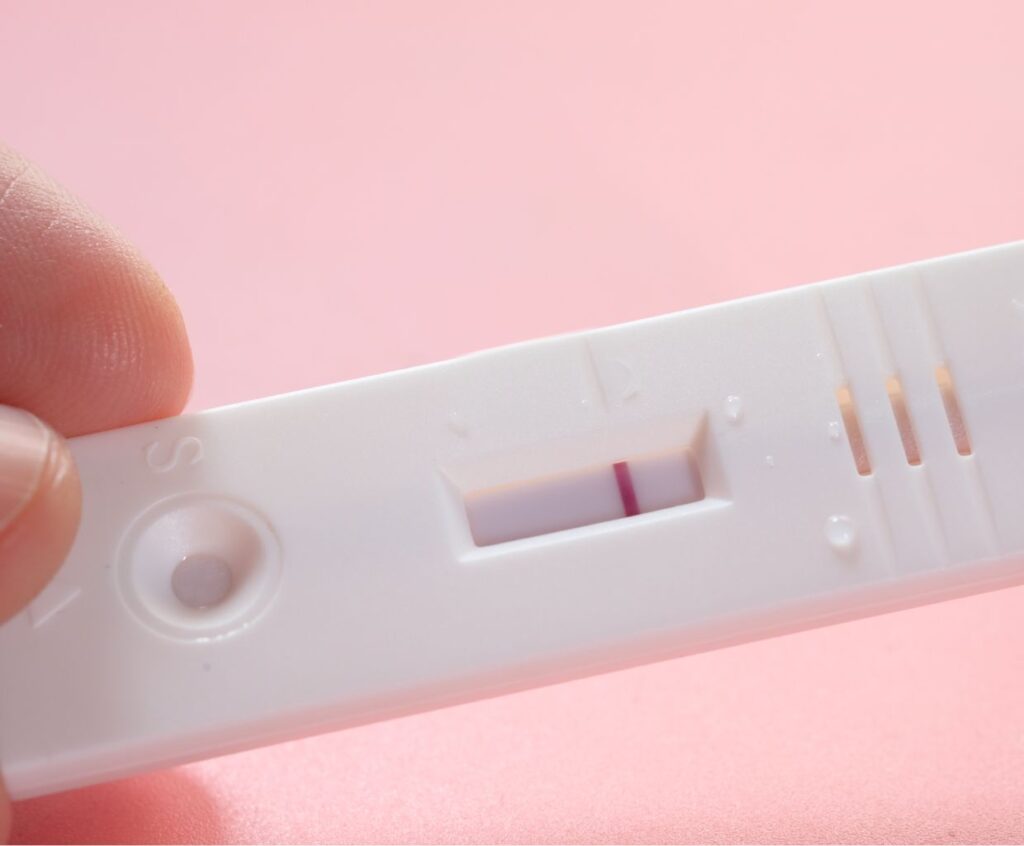Why Pregnancy Tests Might Show a Negative Result: Common Factors to Consider
Discovering that you might be pregnant can be an exciting and nerve-wracking experience. Many women rely on pregnancy tests to confirm their suspicions, but what happens when the result is negative?
It can be confusing and disheartening, but several common factors can contribute to a false negative result. Understanding these factors can help explain why your pregnancy test may have shown a negative result.
Hormone Levels
One of the most common reasons for a negative pregnancy test is taking the test too early. Pregnancy tests work by detecting the presence of a hormone called human chorionic gonadotropin (hCG) in your urine. The placenta produces this hormone shortly after implantation occurs, typically around 6 to 12 days after fertilization.
Testing too early, before hCG levels have had a chance to rise, can result in a false negative. It’s essential to wait until you’ve missed your period or until at least a week after potential conception to ensure more accurate results.
Timing and Method
Following the instructions provided with your pregnancy test is crucial to obtaining accurate results. Each test has its recommended timing and method, so reading the instructions carefully is essential. Some tests require using your first-morning urine, while others can be used anytime.
Waiting too long to read the test results can also lead to false negatives. Be sure to follow the instructions precisely to avoid any potential misinterpretation.
Quality of the Test
Not all pregnancy tests are created equal. Some brands may be more sensitive to hCG levels and provide more accurate results. Choosing a reliable and reputable brand is essential to ensure the best chance of an accurate result.
Using an expired or improperly stored test can also impact its effectiveness. Always check the expiration date and store the test according to the manufacturer’s instructions to maintain reliability.
Medical Conditions and Medications
Certain medical conditions and medications can interfere with the accuracy of a pregnancy test. For example, suppose you have a condition called polycystic ovary syndrome (PCOS). In that case, you may have elevated levels of hCG in your body even if you’re not pregnant, leading to a false positive or negative result.
Similarly, certain medications like fertility drugs or those containing hCG can also affect the outcome of a pregnancy test. It’s always best to consult your healthcare provider if you have any concerns or doubts.
Why Pregnancy Tests Might Show a Negative Result – Conclusion
While a negative pregnancy test can be disappointing, it’s essential to consider these common factors that can contribute to an inaccurate result. Waiting until the appropriate time, following the test instructions carefully, using a reliable brand, and considering any underlying medical conditions or medications can help ensure a more accurate outcome.
If you still have doubts, it’s always advisable to consult with a healthcare professional for further guidance.
Are there any lifestyle factors that can cause a negative result in a pregnancy test, even if pregnancy is present?
Certain lifestyle factors can affect a pregnancy test’s accuracy, leading to a negative result even if pregnancy is present. These factors include:
1. Testing too early: A pregnancy test too soon after conception can result in a false negative. I am waiting until a missed period or at least a week after potential conception is recommended to ensure accurate results.
2. Improper testing technique: Failing to follow the instructions provided with the pregnancy test, such as not using the first urine of the day or not waiting for the recommended time before reading the results, can affect the accuracy of the test.
3. Diluted urine: Consuming large amounts of fluids before taking a pregnancy test can dilute the concentration of the pregnancy hormone (hCG) in urine, potentially leading to a false negative result.
4. Medications: Some medications, such as certain fertility drugs or those containing hCG, can interfere with the accuracy of a pregnancy test.
5. Ectopic pregnancy: In some cases, when a fertilized egg implants outside the uterus (usually in the fallopian tubes), it can result in a lower level of hCG hormone in the urine, which may lead to a false negative result on a pregnancy test.
It is important to note that while these lifestyle factors can potentially affect the accuracy of a pregnancy test, they are not common occurrences. If there is a suspicion of pregnancy despite a negative test result, it is recommended to consult a healthcare professional for further evaluation.
Can certain medications or medical conditions affect the accuracy of pregnancy test results?
Certain medications and medical conditions can affect the accuracy of pregnancy test results. Some medications, such as certain fertility drugs and medications containing hCG (human chorionic gonadotropin), can interfere with the test and produce false-positive results.
On the other hand, certain medical conditions like polycystic ovary syndrome (PCOS) and certain types of ovarian cysts can cause false-negative results by affecting hormone levels. It is always recommended to consult a healthcare professional if there is any doubt or concern about the accuracy of a pregnancy test result.
What common factors can lead to a false negative result in pregnancy tests?
Several factors can potentially lead to a false negative result in a pregnancy test. Some of the common factors include:
1. Testing too early: Pregnancy tests detect the human chorionic gonadotropin (hCG) in urine or blood. Testing too early, especially before the expected date of menstruation, may not provide accurate results as hCG levels might not be high enough to be detected.
2. Diluted urine: If the urine sample used for the test is highly diluted, it may not contain sufficient levels of hCG to be detected. It is recommended to use the first-morning urine for the most accurate results as it is more concentrated.
3. Using an expired or faulty test: An expired or faulty pregnancy test can result in inaccurate results. It is essential to check the expiration date and ensure the test works correctly.
4. Improper test procedure: Not following the instructions provided with the pregnancy test can lead to false negatives. It is crucial to carefully read and follow the instructions regarding urine collection, timing, and reading the results.
5. Ectopic pregnancy: In rare cases, a pregnancy test may produce a false negative result if the fertilized egg implants outside the uterus, known as an ectopic pregnancy. In such cases, hCG may be produced at lower levels than in a normal pregnancy.
6. Medications: Certain medications, such as diuretics or those containing hCG, may interfere with the accuracy of a pregnancy test and potentially result in false negatives.
If a negative result is obtained, but pregnancy is still suspected, it is advised to wait a few days and retest or consult a healthcare professional for further evaluation.
Why Pregnancy Tests Might Show a Negative Result – Conclusion
While a negative pregnancy test can be disappointing, it’s essential to consider these common factors that can contribute to an inaccurate result. Waiting until the appropriate time, following the test instructions carefully, using a reliable brand, and considering any underlying medical conditions or medications can help ensure a more accurate outcome.
If you still have doubts, it’s always advisable to consult with a healthcare professional for further guidance.


